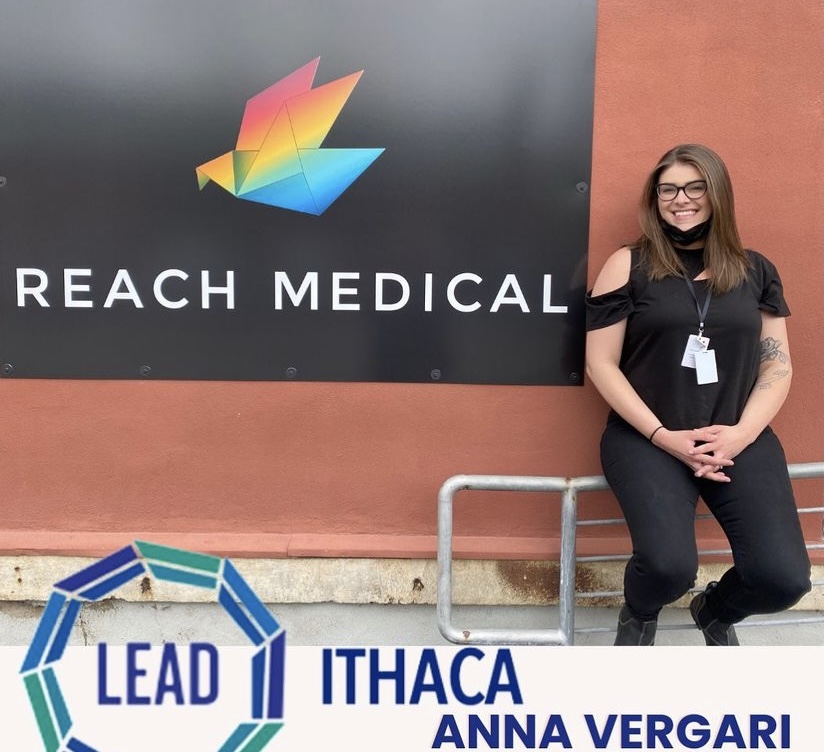Food Distribution Partner Spotlight: LEAD/REACH Medical
By Brigid Higgins, April 2022
When people cannot afford essentials like hygiene products or food, they are more likely to steal these necessities out of desperation. Rather than incarcerating individuals who commit these misdemeanors, police officers can divert the charge and direct community members toward resources, support, and trauma-informed care by referring them to the Law Enforcement Assisted Diversion (LEAD) program, which was launched in Ithaca earlier this year. The program helps those who are experiencing homelessness or who may not have access to food or other necessities to improve their quality of life and prevent future interactions with the police. LEAD has partnered with FDN to help provide food to LEAD program participants.
The LEAD program is a city initiative, but its case management is located at REACH Medical, a medical practice dedicated to serving those who typically face stigma in healthcare, especially individuals battling opioid addiction. Both Anna Vergari, LEAD Case Manager, and Lauren Penfield, Community Health Worker at REACH, said that before they were aware of REACH Medical’s partnership with FDN, they noticed that “bread would just appear in the waiting room.” REACH Medical and FDN have been partnered since 2018, so employees at REACH were able to direct those in the LEAD program toward FDN.
When Anna first connected with FDN, she was immediately impressed by her conversation with Meaghan Sheehan Rosen, FDN’s coordinator, who Anna recalls was “very present, making sure that LEAD participants would be connected with resources on the days they needed them most, and taking note of the foods that would best feed the population LEAD is serving.”
It’s important to the LEAD program to be able to deliver food to their participants on Fridays, Anna says. “If you help people feel stable with regard to food over the weekend, when fewer resources are available, it reduces the desire or the need to go into the store and take something to eat out of desperation, survival, or starvation.”
Anna remembers speaking with a LEAD program participant who admitted that they had been craving chocolate, a luxury that they had not had in a long time and did not have the means to buy. The following week during her Friday pickup, Anna noticed that FDN had received boxes full of cookies and cakes that morning, and she was able to bring cookies to that LEAD participant. While bringing “real meals” to LEAD participants is the main goal of LEAD’s partnership with FDN, Anna says it’s also incredibly rewarding to be able to bring people those special, sweet treats that we all enjfoy having from time to time, since access to these luxuries can improve one’s quality of life.
What stands out most to Anna from her food deliveries is the joy and gratitude she witnesses in those who receive donations from FDN but also from those who donate to FDN. When she drops off food to LEAD participants, they are always so grateful, and the various FDN partners are always happy to help get food into the hands of people who need it. She loves that FDN fosters an environment free of stigma and judgment toward those in the Ithaca community who experience food insecurity.
Lauren Penfield remembers stopping by the FDN facility on the way to a vigil at the Southern Tier AIDS Program to see if they might have any food she could bring to the event. That day, FDN had received boxes of cakes and sweets with no intended destination, so the volunteers at the storage facility helped Lauren pack all those boxes into her car, and she was able to bring the cakes to the vigil as comfort food for those in attendance. “Everyone is so collaborative, which is amazing. FDN feels like a safe space that is very true to their mission.”

